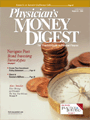Consider the Value of Passive Investing
If you were confident that you couldimprove your investment returns byalmost 2% per year while taking lessrisk, would you do it? Does it sound toogood to be true? Well, it's not.
Expensive Nondisclosure
Note:
Clients of active managers endureaverage net returns that are about 2%below the index in every market or marketsegment in the world. That's becauseactive managers fall short of the index70% to 80% of the time. Of course, intheir futile attempt to beat the index,they generate additional risk and enormoustax bills. Despite this, active managersconvince investors to pay themfees. When it comes to mutualfunds, these fees and other expenses aredisclosed in the fund's prospectus asexpense ratios.
Other expenses often exceed the disclosedfees. For example, any purchase orsale of a stock by the fund will generate acommission to the broker involved. Inaddition, there is a bid-ask spread onevery security transaction (ie, the marketmaker buys at one price and sells at ahigher price). Of course, an active managercan also impact the price of a stock bypurchasing or selling shares in excess ofthe market demand. Unloading a big positioncan take a long time and drive theprice of the stock down in the process.
These expenses are every bit as real asthe expense ratios, but unlike the expenseratios, they aren't properly disclosed. Theycan only be imputed from a fund'sturnover ratio. For accounting purposes,these costs are included in the stock pricesthat the fund obtains on purchase or sale.Higher turnover leads to increased costsand reduced performance. There is adirect relationship between fund turnoverand underperformance.
Index Superiority
It shouldn't surprise investors that averageperformance is reduced almost exactlyby average costs. Mathematically, thismust be the result. While returns fall, riskrises. That's because the dispersion aroundthe average result is large. For instance, aparticular fund might fall 10% or morebelow the average. Clearly, this would bea disastrous result. And the risk is entirelyuncompensated—for bearing the risk,your expected return falls 2%.
Of course, a few funds or managersbeat the index. That's what keepsinvestors coming back. But your chanceof picking those funds or managers isonly 20% to 30%, and past performancehas proven a misguided strategy. If pastperformance was a useful investing strategy,we could all use last year's Morningstarresults and end up rich.
Bottom line:
Index funds have negligible turnoverand rock-bottom expense ratios. Soswitching from an active to a passivestrategy increases your expected returnby almost 2%. Passive strategies will alsoslash your tax obligations on gains. You would need a compellingreason to reject index funds asthe only rational investment choice.
Frank Armstrong III is thefounder and principal of InvestorSolutions, Inc, a fee-only, SEC-registeredinvestment advisor. Heis also the author of TheInformed Investor: A Hype-FreeGuide to Constructing a Sound FinancialPortfolio (Amacom; 2002), which is now availablein paperback. For more information, visitwww.investorsolutions.com.
